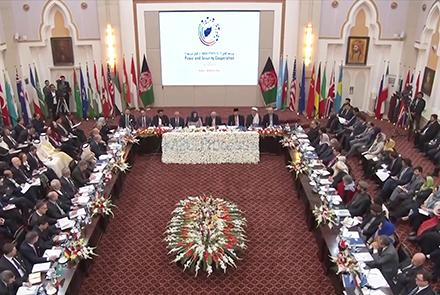While September 21 marks the International Day of Peace, the Afghan peace process’s fate remains unclear despite continued efforts by Kabul and its international allies.
In addition to efforts made in the past years, two big meetings were held in Kabul this year and three meeting were in other countries to bring the Afghan government and Taliban on the negotiations table in a bid to end the ongoing war and violence in the war-weary Afghanistan.
The meetings held in the country and abroad this include the Second Kabul Process Meeting in June, gathering of over 2,000 Afghan clerics in Kabul in March, the Islamic Countries Religious Scholars Meeting in Indonesia in March, Tashkent Peace Summit on Afghanistan in March, Islamic Scholars Meeting in Saudi Arabia in March and the US Principal Deputy Assistant Secretary Allice Wells’ meeting with Taliban representatives in Qatar in July.
Despite all these efforts and meetings, still there is not a predominant indication of official talks between the Afghan government and Taliban and that the fate of Afghan peace process remains uncertain.
Now the question that rises is that why peace has not come to Afghanistan and the ground has not been paved for Afghan government and Taliban talks despite these efforts?
“Taliban do not exactly say that they want an Islamic emirate, but their movements, strategy and feelings show they want to reestablish their Islamic emirate,” said Qazi Amin Wedaq, member of the High Peace Council.
Meanwhile, Amrullah Saleh, former head of the National Directorate of Security, and Salahuddin Rabbani, Acting Minister of Foreign Affairs, said the Afghan government has not adopted a clear policy for peace.
“We have bee distanced from peace because the wrong politics of the government legitimatized the enemy,” said Saleh.
“Peace is not possible unless the roots of the war are not eliminated in Afghanistan's borders,” said Rabbani.
The European Union Ambassador to Afghanistan Pierre Mayaudon however said there is still a hope for peace and ending violence in the country through talks.
“If we consider the recent developments, we find some reasons for hope,” said Mayaudon.
“The main obstacle on the way of peace process is the Afghan government. Because from the government point of view, Taliban are not allowed to attend in international meetings,” said Nazar Mohammad Tanin, political affairs analyst.
Meanwhile, an Afghan delegation is in Russia to address the details related to holding the Moscow format meeting on Afghanistan.
Some Kabul residents said Afghans are tired of war and that there is a consensus among them on peace.


